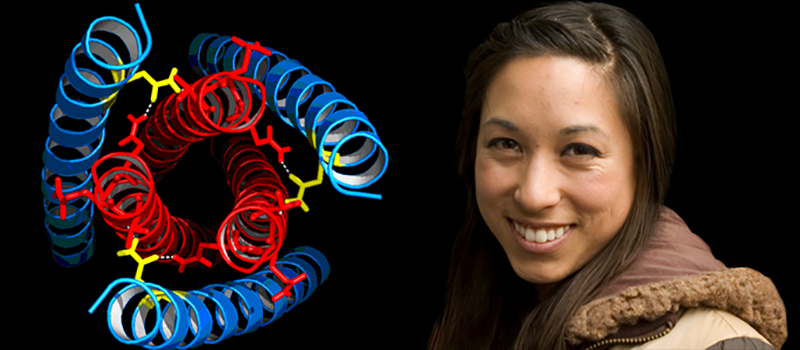Biomolecular Engineering and Bioinformatics Courses
Predoctoral fellows in the track in Biomolecular Engineering and Bioinformatics must complete rigorous coursework in bioinformatics, chemistry, biology, and statistics. We also require new students to conduct research three seven-week long rotations in a combination of computational and experimental laboratories. BMEB students also have the flexibility to craft their graduate curriculum to suit individual interests, creating a strong foundation for their independent dissertation research. Advanced graduate students work under the direct supervision of one of twenty-five BMEB-affiliated faculty members, while also interacting closely with other faculty members. Training in this interdisciplinary research environment has enabled our students to lead bioinformatics efforts to understand biology and disease, advancing the frontiers of biomedical research, with graduates now in top university faculty positions and leading industrial research laboratories.
Curriculum Requirements
| First Year |
• Complete core series • BME 229: Protein & Cell Engineering • BME 278: Stem Cell Biology • Participate in seminars each quarter (BME 280B) |
| Second Year | • Complete BME 201: Scientific Writing (Winter) • Write dissertation proposal and take qualifying exam/advance (Spring) • Form faculty dissertation committee for student guidance • Participate in research meetings and seminars each quarter (BME 281s) • Take advanced graduate courses to strengthen knowledge |
| Third Year | • Perform dissertation research • Participate in research meetings and seminars each quarter (BME 281s) |
| Following Year(s) | • Complete dissertation research • Hold annual progress meetings with committee • Participate in research meetings and seminars each quarter (BME 281s) • Public presentation of dissertation defense |
Sample First-Year Schedule
| Fall |
|
| Winter |
|
| Spring |
|
For questions specific to the BMEB training track, email the BMEB Graduate Program Advisor, Theo-Alyce Gordon
 |
UCSC's graduate Program in Biomedical Sciences and Engineering is supported by training grants from the National Institute of General Medical Science and the National Human Genome Research Institute. |

